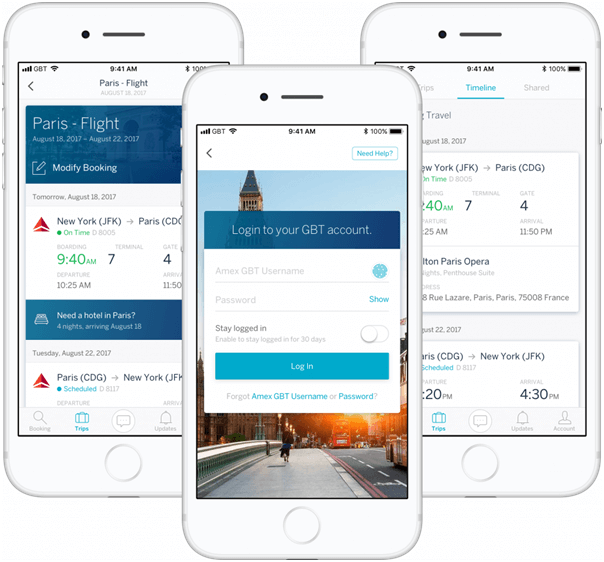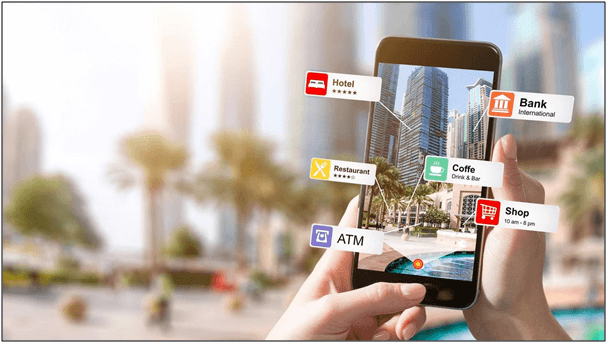An effective corporate travel management program is crucial because it drives and accelerates the organization business growth. It is critical to choose a provider who can match organizational needs when it comes to corporate travel buying. It is also critical for organization personnel to make use of solutions that had been purchased. Otherwise, the organization will have no idea where their employees are going, how they are getting around and how much money they are spending. Self-service technologies, digital service purchases, minimal human interactions and rapid outcomes are preferred by today’s age. As a result, technical competencies should be the primary factor when selecting travel solutions and programs. The travel business is at the vanguard of digital disruption, transforming people’s travel habits. The travel industry’s business and operational paradigms will be reshaped by a slew of digital technologies. With advanced technologies, people will be more efficient in their daily lives and benefiting businesses in the long run.

Table of Contents
Mobile App Technology
For many years, using booking websites for airline tickets, hotel reservations and travel related matters were the mainstay for travel bookings. However, with improvised technologies, the attention is turning to mobile apps. Comparing to older technology such as website bookings, mobile app is a lot more convenient. Consumers may arrange and book for their travel itineraries anytime and anywhere conveniently with just a smartphone. They will also receive up-to-date notifications on their bookings. Service providers can likewise use the app feature to send consumers’ reminders and alert them when there are any changes. They can also send consumers a welfare check via text messages in times of crisis, fulfilling their duty of care, instilling trust in consumers, which will greatly benefit the company, aligning to its business goals. Therefore, it is no surprise that mobile apps are the way to go for many businesses.

Smart Hotel Technology
The advent of smart hotel technology is a breakthrough for the tourism industry, benefiting both hoteliers and consumers. With the hotel transparency, it also allows them to make data-driven decision more efficiently and effectively. Hoteliers are increasingly depending on artificial intelligence [AI] to make better pricing and demand decisions. Guest data is analysed to develop effective marketing campaigns and tailor-made packages to meet the demands of customers, particularly business travellers. Behind the scenes, AI hotel technologies are used to increase operations efficiency by using a chat bot to manage monotonous chores such as answering commonly asked questions, reducing unnecessary manpower and so that workers can focus on providing the best possible service. Hoteliers frequently use virtual reality tours with a 360-degree feature, introducing their facilities and rooms. This is extremely useful for procurement teams when making judgments on hotel procurement for the company during the booking process. Millennial travellers, in particular, prefer and mainly use a hotel app to personalize their stay. They can simply manage their reservation, make virtual payments, take a virtual tour of the rooms, check in and out of the hotel room and communicate with hotel staff simply by using the hotel app. Smart Hotels use technology to provide one-of-a-kind experience for their visitors. Firstly, they use technological advancements such as voice control, facial recognition and mobile control, giving customers control over their experience. Secondly, as time is the essence while traveling on business, corporate travellers are given the option to check-in and check-out effectively by utilizing the app.

Artificial Intelligence and Virtual Reality
Many players in the hospitality industry are now incorporating AI technology into their daily operations. They create AI-powered robots that are programmed in dealing with routine client interactions. AI technology has been proven in its immense growth potential. Robots mimicking human thought patterns are made possible with Artificial Intelligence, facilitating the digital transformation in the travel industry. It is usually used for front-facing customer service such as concierge. With AI technology allowing automation in a variety of processes, it instils efficiency and effectiveness in everyday life, contributing to the organizational goals. Customers with straightforward requests or questions do not have to spend their precious time in writing emails and waiting for responses by using AI chat bot. Many corporate travellers who are always multi-tasking and hurrying to change their reservations will appreciate this feature.
Virtual reality is a technique that makes people feel as if they are physically present in a virtual world by using visuals, sounds and physical sensations. Virtual reality hotel tours can be made available on hotel websites, allowing both current guests and prospective guests to see their room or other areas and facilities of the hotel before their arrival. Users can take a virtual tour which include flight experience, arrival and some of the major landmarks.
The full content is only visible to SIPMM members
Already a member? Please Login to continue reading.
References
Egencia. (2022). “What is the future of procurement solutions?” Available at: https://www.egencia.com.sg/en/procurement-solutions-supplier-selection (Accessed: 8 June 2022).
Eva Lacalle. (May 2021). “15 most important hotel technologies trends for 2022”. Available at: https://www.mews.com/en/blog/hotel-technology (Accessed: 8 June 2022).
Foo Yee Choong, DPSM. (2021). Key Procurement Considerations for Corporate Travel. SIPMM Publications. Available at SIPMM: https://publication.sipmm.edu.sg/key-procurement-considerations-corporate-travel/ (Accessed: 8 June 2022).
Jo Tan Ling Ling, ADPSM. (2021). Digital Technologies for Major Procurement Projects. SIPMM Publications. Available at SIPMM: https://publication.sipmm.edu.sg/digital-technologies-for-major-procurement-projects/ (Accessed: 8 June 2022).
Kam Pooi Foon, ADPSM. (2021). Smart Technologies For Hotel Procurement. SIPMM Publications. Available at SIPMM: https://publication.sipmm.edu.sg/smart-technologies-for-hotel-procurement/ (Accessed: 8 June 2022).
REVFINE. (2022). “Artificial Intelligence in Hospitality”. Available at https://www.revfine.com/artificial-intelligence-hospitality-industry/ (Accessed: 8 June 2022).
Thomas H. Davenport (2013). “At the bid data crossroads: Turning towards a smarter travel experience”. Available at: https://amadeus.com/documents/en/blog/pdf/2013/07/amadeus-big-data-report.pdf (Accessed: 8 June 2022).

